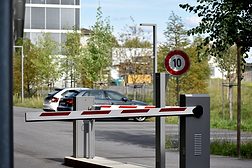- NEWS
- MANAGEMENT
- PHYSICAL
- CYBER
- BLOG
- COLUMNS
- EXCLUSIVES
- SECTORS
- Arenas / Stadiums / Leagues / Entertainment
- Banking/Finance/Insurance
- Construction, Real Estate, Property Management
- Education: K-12
- Education: University
- Government: Federal, State and Local
- Hospitality & Casinos
- Hospitals & Medical Centers
- Infrastructure:Electric,Gas & Water
- Ports: Sea, Land, & Air
- Retail/Restaurants/Convenience
- Transportation/Logistics/Supply Chain/Distribution/ Warehousing
- EVENTS
- MEDIA
- MORE
- EMAG
- SIGN UP!
Physical
Special Report – Critical Infrastructure
GridEx: How exercising response and recovery supports grid reliability
GridEx has grown to be the largest distributed play exercise of its kind in North America, serving as a critical benchmark that maximizes the ability of organizations to coordinate with neighboring utilities and reliability coordinators to effectively exercise and address grid reliability issues.
October 7, 2021
Special Report – Critical Infrastructure
Cyber-physical security in an interconnected world
Together, cyber and physical assets represent a significant amount of risk to physical security and cybersecurity — each can be targeted, separately or simultaneously, to result in compromised systems and infrastructure.
October 6, 2021
Special Report – Critical Infrastructure
Protecting the energy grid is a team sport
The critical infrastructure public and private sector can look to America’s electric companies for a holistic approach and partnership on supporting essential improvements to security posture and culture.
October 5, 2021
Sign-up to receive top management & result-driven techniques in the industry.
Join over 20,000+ industry leaders who receive our premium content.
SIGN UP TODAY!Copyright ©2025. All Rights Reserved BNP Media.
Design, CMS, Hosting & Web Development :: ePublishing










